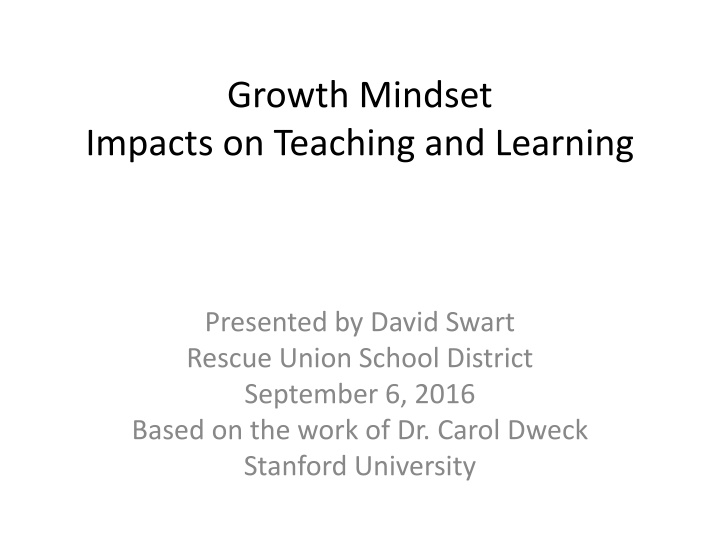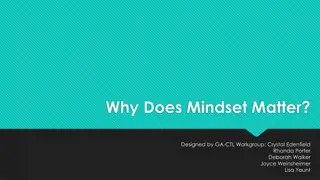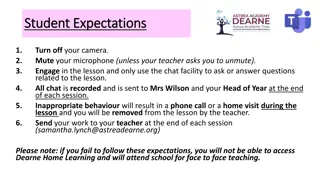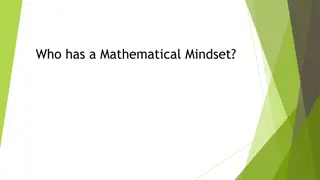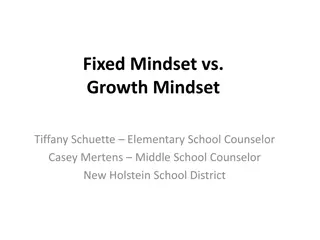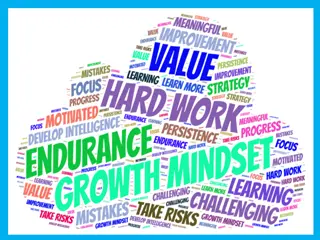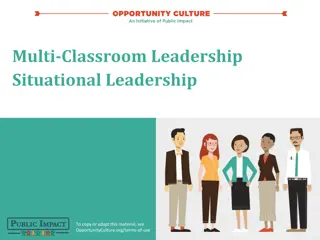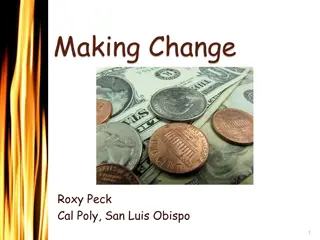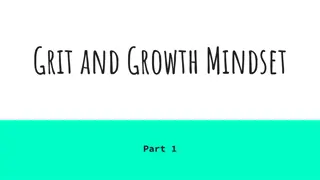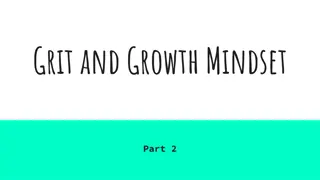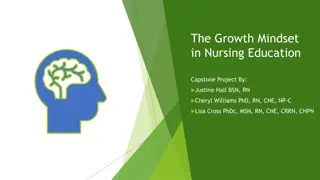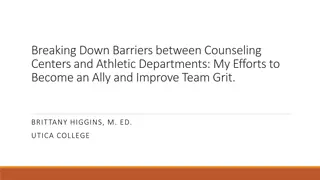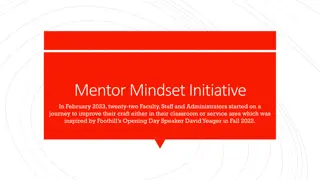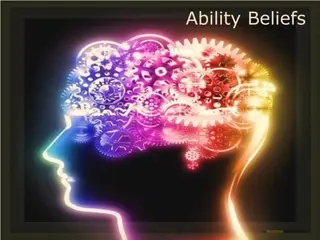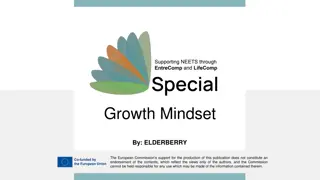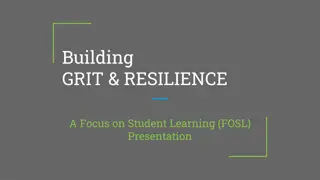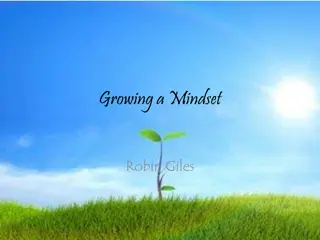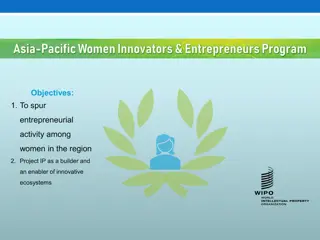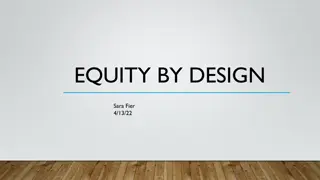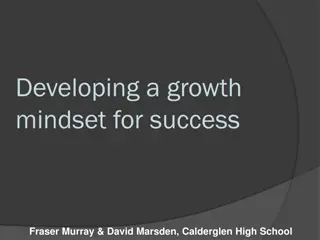The Impact of Growth Mindset on Teaching and Learning
Explore the profound influence of a growth mindset on education, as presented by David Swart from Rescue Union School District in 2016, based on the groundbreaking work of Dr. Carol Dweck from Stanford University. Discover how cultivating a growth mindset can revolutionize teaching, learning, parenting, business, sports, and personal relationships, with implications reaching far beyond the classroom. Take a mindset quiz to assess your mindset and reflect on the implications for educational practices and student outcomes.
Download Presentation

Please find below an Image/Link to download the presentation.
The content on the website is provided AS IS for your information and personal use only. It may not be sold, licensed, or shared on other websites without obtaining consent from the author.If you encounter any issues during the download, it is possible that the publisher has removed the file from their server.
You are allowed to download the files provided on this website for personal or commercial use, subject to the condition that they are used lawfully. All files are the property of their respective owners.
The content on the website is provided AS IS for your information and personal use only. It may not be sold, licensed, or shared on other websites without obtaining consent from the author.
E N D
Presentation Transcript
Growth Mindset Impacts on Teaching and Learning Presented by David Swart Rescue Union School District September 6, 2016 Based on the work of Dr. Carol Dweck Stanford University
Dr. Carol Dweck, Ph.D Stanford University Original work in 2006 Book entitled, Mindset - the New Psychology of Success (Ballantine Books, Amazon) Work bridges Developmental, Social and Personality Psychology Based on research on brain plasticity Huge Implications for Teaching and Learning, Parenting, Business, Sports, Music, even Personal Relationships!
Mindset Quiz (5-7 minutes) Please place a check in the box that identifies the extent to which you agree or disagree with the statement. After completing the quiz, circle the number in the box that matches each of your answers, then total each column and get a grand total.
Mindset Quiz Results 45 60 Points = 34 44 Points = 21 33 Points = 0 20 Points Strong Growth Minds Growth Mindset with some Fixed ideas Fixed Mindset with some Growth ideas Strong Fixed Mindset =
Think, Pair, Share Impacts of the Classroom Now that you have seen the questions, which mindset do you think you are? (Strong Growth, Growth with some Fixed, Fixed with some growth, or Strong Fixed) Journal #2: Now that you have scored it, do you think this is accurate? Where in your life can you recognize fixed mindsets? Where are you growth-minded? What effect does teacher expectation have on student learning? (Marzano) How do our own beliefs (fixed vs. growth mindset) affect how we teach our students? If we taught all students to have a growth mindset, what impact would it have on how students approach their own individual learning? How can a growth mindset increase rigor?
How Can a Growth Mindset Increase Rigor? 8
Video #1 Carol Dweck: How to Help Every Child Fulfill Their Potential
Dweck and her colleagues offered four-year-olds a choice: They could either redo an easy jigsaw puzzle, or try a harder one. Even these young children conformed to the characteristics of one of the two mindsets those with fixed mentality stayed on the safe side, choosing the easier puzzles that would affirm their existing ability, articulating to the researchers their belief that smart kids don t make mistakes; those with the growth mindset thought it an odd choice to begin with, perplexed why anyone would want to do the same puzzle over and over if they aren t learning anything new. In other words, the fixed-mindset kids wanted to make sure they succeeded in order to seem smart, whereas the growth- mindset ones wanted to stretch themselves, for their definition of success was about becoming smarter.
Video #2 Carol Dweck: A Study on Praise and Mindset The effects of praise on growth mindset/effort vs. intelligence and ability
Two Mindsets Ramifications for Learning Challenges Obstacles Effort Criticism Success of Others
Effects of Growth Mindset in the Classroom Beliefs effect learning outcomes (learning is viewed as the path to mastery) Effort (not yet) Questioning Feedback Mistakes Feedback Thinking (metacognition) Persistence Less fear of negative consequences
Conclusion: Growth Mindset 20 years of research indicates that the view that you adopt for yourself profoundly affects the way you lead your life Believing that your basic qualities (and those of others) are carved in stone (the fixed mindset) creates an urgency to prove yourself over and over Growth Mindset moves us from the belief in fixed attributes and in recognizing and praising intelligence toward a growth mindset that recognizes the importance of: *Strategies *Effort *Focus *Persistence ( not yet ) Growth Mindset changes how we perceive failure Cultivated by deliberate practice and specific vocabulary
Implications for the Classroom Performance Goals vs. Learning Goals Performance Goals = About measuring ability (students may condemn themselves) Learning Goals = About mastering new things Performance goals contribute to Entity Theory Growth goals Students see both themselves and learning in a different way! (This changes how we plan, teach and assess.)
Even Greater Implications Growth Mindset creates an enjoyment around learning Fixed Mindset Can foster dishonesty (40% of smart kids were dishonest about their scores because we told them they were smart) Implications for relationships myths about true love , living happily ever after , (the ideal vs. growth mindset improving communication and avoiding assigning blame) Growth mindset can create a voracious appetite for learning!!!
Basic Components Developing Growth Mindsets in the Classroom by Mike Gershon (2016) Getting the Language right Changing how students perceive mistakes Targeting student effort Giving great feedback Thinking about thinking (metacognition) Creating a challenging culture Focusing on process Engaging parents with growth mindset
Impacts of Teaching and Learning Shifts in thinking in how to meet the needs of all students (differentiation) in the classroom Shifts in programs such as GATE (from a small subgroup to how we better serve all students) Differentiation is critical but there are many myths around differentiation such as: #1 Differentiation means I have to plan something different for every student #2 I differentiate by grouping students by reading ability and giving them leveled readings. #3 I can differentiate effectively using one data point. #4 Differentiation is easy, just give the high students more and the low students less. #5 I don t need to change anything about my instructional practices to effectively differentiate.
Thank you! Enjoy your day. Resources for this presentation: Carol Dweck: Mindset: the New Psychology of Success (2006, Random House) Mike Gershon: How to Develop Growth Mindsets in the Classroom (2016) 60 strategies Mary Cay Ricci: Mindsets in the Classroom, Building a Culture of Success and Student Achievement in Schools (2013, Prufrock Press)
